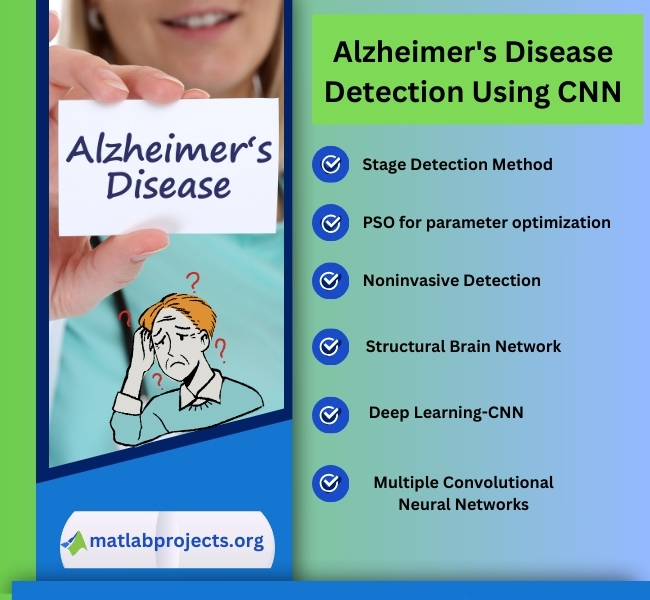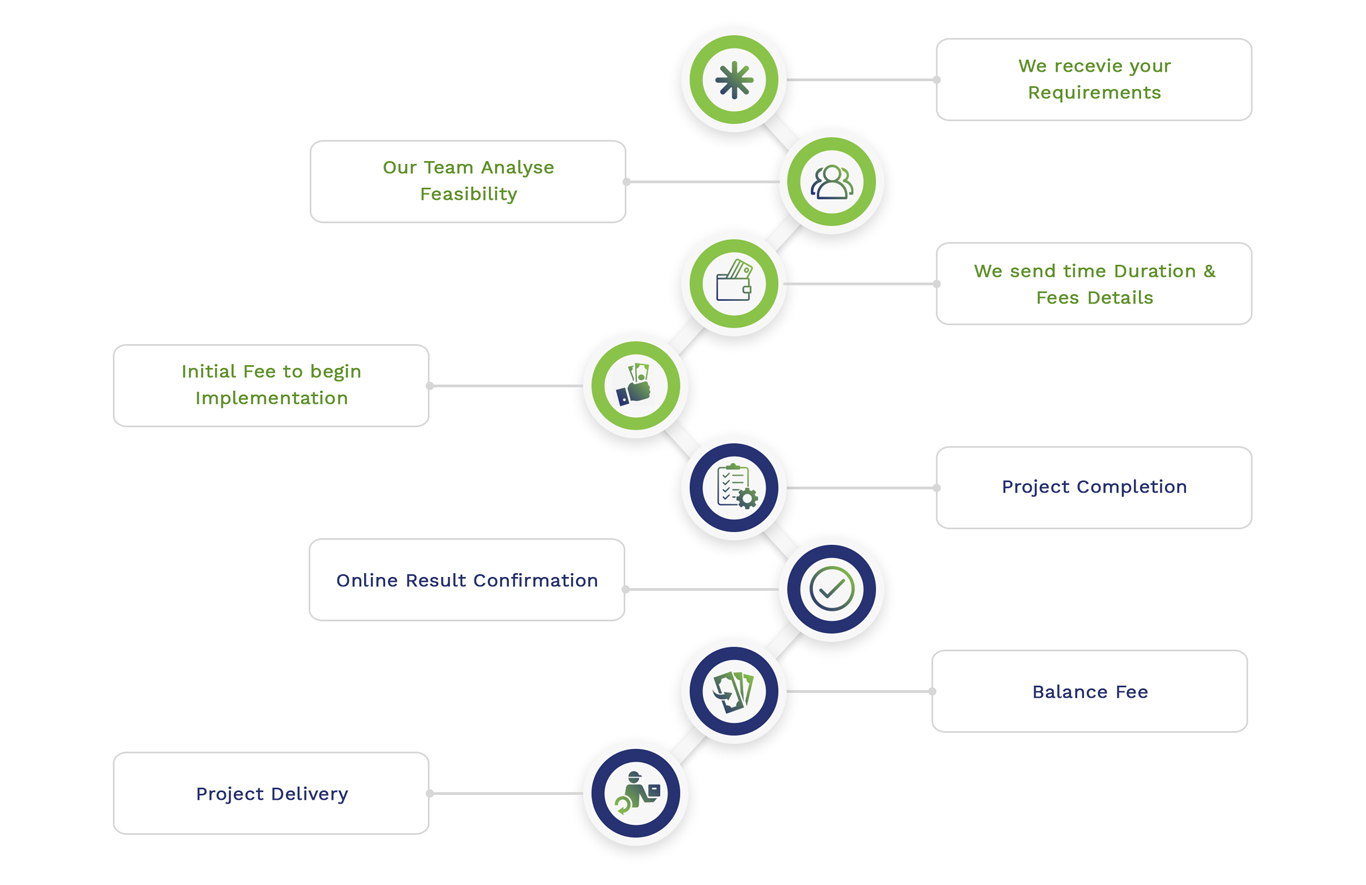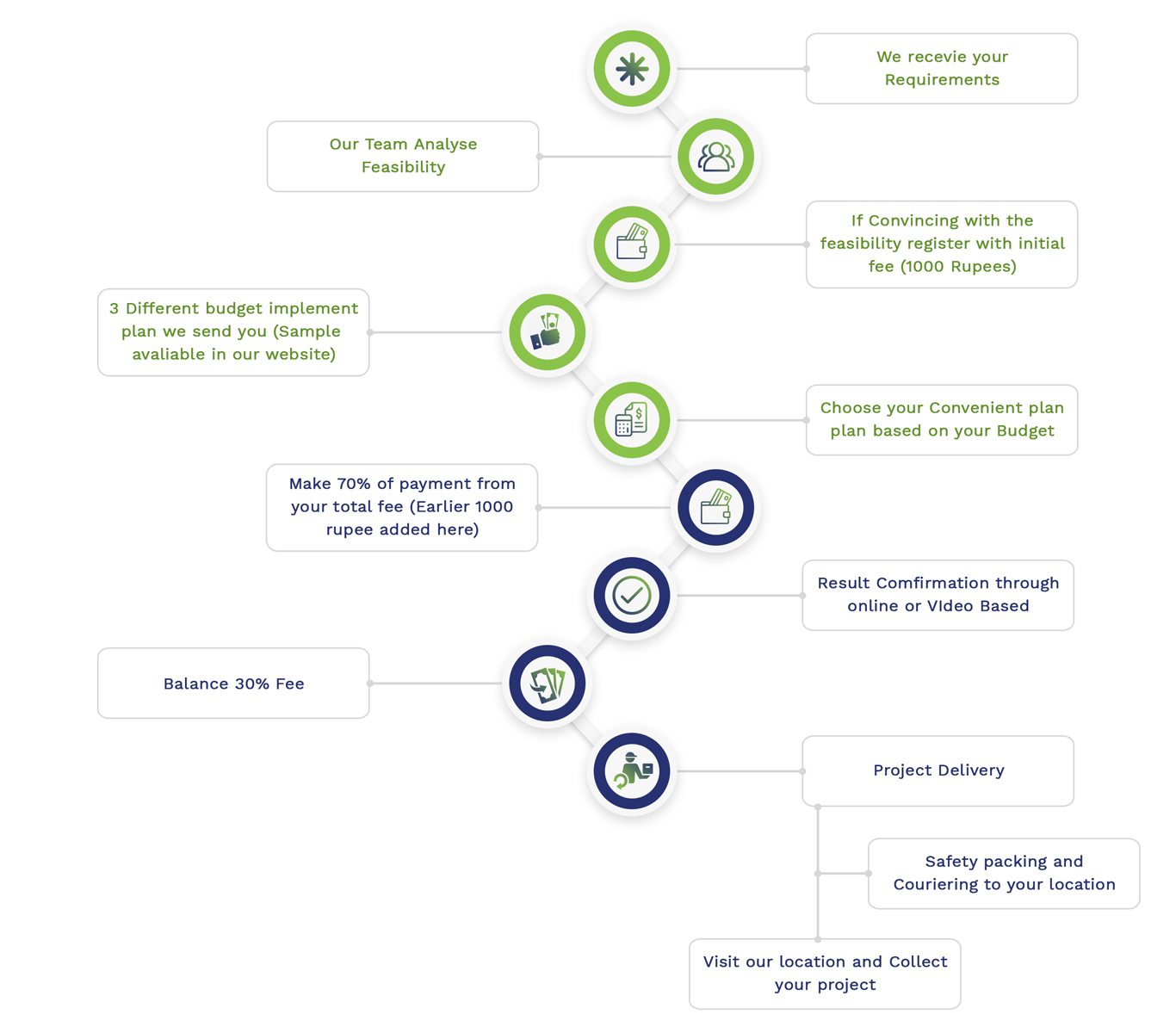Alzheimer’s disease detection by employing Convolutional Neural Networks (CCN) normally involves identifying medical imaging data, like Magnetic Resonance Imaging (MRI) or Positron Emission Tomography (PET) scans to find patterns or modifications that are the indicative of the diseases. There are profound experts to aid scholars by using latest advancements and improvements in terms of methodologies. Any type of Alzheimer’s disease detection are solved by us in a well-mannered way. You can score a high rank with us. Research ideas on Alzheimer’s disease detection will be guided to scholars as per their interest.
Here we give a step-by-step guidance on how this can be done perfectly:
- Data Collection:
- Imaging Data: Our work gathers MRI or PET scan data of the brain. Preferably this dataset have images from patients with different levels of Alzheimer’s as well as the images from healthy individuals.
- Metadata: Some of the metadata used by us are patient age, gender, clinical assessments and other appropriate data useful as auxiliary information.
- Data Preprocessing:
- Image Normalization: To fall in the range of [0, 1] or [-1, 1], we normalize the pixel values of the images.
- Segmentation (Optional): Our model requires to divide the brain region from the non-significant parts in the images, in some cases.
- Augmentation: Incorporating image augmentation methods like rotations, zooming, and flips to improve the efficient size of the dataset and enhance generalization.
- Data Splitting: The datasets can be split into three sets namely training, validation and test sets by us.
- Model Architecture:
For the image data, we propose CNN architecture suitable to us. We initiate with known architectures like VGG, ResNet, or DenseNet and change it as for our data.
- Model Training:
- By utilizing the training set our framework trains the CNN.
- With the help of a validation set, we frequently validate the performance.
- Utilize relevant loss functions like binary cross-entropy if it is a binary classification issue as it is Alzheimer’s vs No Alzheimer’s.
- Model Evaluation:
- We estimate the framework’s achievement on the test set, when once the training is completed.
- Accuracy, precision, recall, F1-score and AUC-ROC curve are some of the general metrics handled by us.
- Model Interpretation:
Given the medical suggestions, interpreting why our model generates certain forecasting is important.
- Class Activation Mapping (CAM): According to the CNN, CAM aids in visualizing which areas in the image are most indicative of Alzheimer’s.
- Model Deployment:
If our framework gives hopeful outcomes, then we combine it into a clinical decision support model. But continuously make sure that the forecasting is surveyed by healthcare specialists.
Tools & Libraries:
- Data Preprocessing & Augmentation: Some of the python libraries used in our model involve numpy, scikit-image and imgaug.
- Deep Learning: We utilize the deep learning frameworks like TensorFlow (with keras) or PyTorch for constructing, training and estimating the CNN.
Challenges & Considerations:
- Data Privacy: To make sure that the data is anonymized and we obey all appropriate data security rules, since the medical data is sensitive.
- Imbalance: In our work, frequently the number of positive cases (Alzheimer’s) is much less than the negative cases. These can result in class imbalance. We take into account the methods like oversampling, undersampling, or employing balanced batch generators.
- External Validations: To make sure about robustness and generalizability, it is important for us to validate the framework on external datasets.
- Collaboration: We work together with field specialists, like radiologists or neurologists, to obtain understandings that guide the framework improvement and validation.
Recall, while CNNs can aid in early detection and identification, the last decisions should always include human specialists. The system serves as a help, not a standby for medical experts. Here matlabprojects.org are ready to overcome all challenges in Alzheimer’s Disease Detection using CNN project by our massive resources.

Alzheimer’s Disease Detection Using CNN Thesis Ideas
All trending thesis ideas will be assisted for PhD and MS scholars. We have expert and well-equipped resources to carry out all Alzheimer’s Disease Detection using CNN projects effectively. The trending thesis topics that we have worked are as follows.
- Multi-Layer Feature Fusion-based Deep Multi-layer Depth Separable Convolution Neural Network for Alzheimer’s Disease Detection
- Design and Implementation of Alzheimer’s Disease Detection using cGAN and CNN
- Alzheimer’s Disease Stage Detection Method Based on Convolutional Neural Network
- Comparative Analysis of Alzheimer’s Disease Detection via MRI Scans Using Convolutional Neural Network and Vision Transformer
- Early Detection of Alzheimer’s Disease using CNN with PSO for parameter optimization
- Multiscale low-level feature fused multilayer convolution neural network for Alzheimer’s disease detection
- Detection of Alzheimer Disease on Online Handwriting Using 1D Convolutional Neural Network
- Development of framework by combining CNN with KNN to detect Alzheimer’s disease using MRI images
- Noninvasive Detection of Alzheimer’s disease from Conversational Speech Using 1D-CNN
- Transfer Learning-Assisted DementiaNet: A Four Layer Deep CNN for Accurate Alzheimer’s Disease Detection from MRI Images
- Comparison of CNN Architectures for Detecting Alzheimer’s Disease using Relevance Maps
- Detection of Alzheimer’s Disease Using Convolutional Neural Network
- A Alzheimer’s Disease Detection and Classification Using Customised Convolutional Neural Network
- Detection of Alzheimer’s Disease Using a Convolutional Neural Network
- Alzheimer’s Disease Detectoin Using Multiple Convolutional Neural Networks
- Automatically detection of multi-class Alzheimer disease using Deep Siamese Convolutional Neural Network
- Alzheimer’s Disease Detection via a Surrogate Brain Age Prediction Task using 3D Convolutional Neural Networks
- Region-based Convolutional Neural Networks with IoT-based Alzheimer’s disease detection and classifications
- Alzheimer’s Disease Detection Using Deep Learning-CNN
- Deep Multi-Branch CNN Architecture for Early Alzheimer’s Detection from Brain MRIs
- An MRI Scans-Based Alzheimer’s Disease Detection via Convolutional Neural Network and Transfer Learning
- Detection of EMCI in Alzheimer’s Disease Using Lenet-5 and Faster RCNN Algorithm
- Comparative study of detection and classification of Alzheimer’s disease using Hybrid model and CNN
- A Modified Convolutional Neural Networks For MRI-based Images For Detection and Stage Classification Of Alzheimer Disease
- Alzheimer’s Disease Detection and Classification using Transfer Learning Technique and Ensemble on Convolutional Neural Networks
- Detection of Alzheimer’s Disease Using Graph-Regularized Convolutional Neural Network Based on Structural Similarity Learning of Brain Magnetic Resonance Images
- Detection of Alzheimer’s Disease using Structural Brain Network and Convolutional Neural Network
- Alzheimer’s Disease Detection Using CNN Based on Effective Dimensionality Reduction Approach
- Multi-branch Multi-task 3D-CNN for Alzheimer’s Disease Detection
- Early Detection of Alzheimer’s Disease from 1.5 T MRI Scans Using 3D Convolutional Neural Network
- Early detection of Alzheimer’s disease using local binary pattern and convolutional neural network
- Alzheimer’s disease detection using depthwise separable convolutional neural networks
- A deep learning based convolutional neural network model with VGG16 feature extractor for the detection of Alzheimer Disease using MRI scans
- Alzheimer’s disease diagnosis framework from incomplete multimodal data using convolutional neural networks
- Detection of Alzheimer’s disease from temporal lobe grey matter slices using 3D CNN
- Alzheimer Detection Using CNN and GAN Augmentation
- AlzheiNet: A Shallow Convolution Neural Network for Alzheimer’s Detection using MRI scans
- Detection of Different Stages of Alzheimer’s Disease Using CNN Classifier
- Volumetric Convolutional Neural Network for Alzheimer Detection
- Deep Learning based Detection Model for Alzheimer’s Disease
Subscribe Our Youtube Channel
You can Watch all Subjects Matlab & Simulink latest Innovative Project Results
Our services
We want to support Uncompromise Matlab service for all your Requirements Our Reseachers and Technical team keep update the technology for all subjects ,We assure We Meet out Your Needs.
Our Services
- Matlab Research Paper Help
- Matlab assignment help
- Matlab Project Help
- Matlab Homework Help
- Simulink assignment help
- Simulink Project Help
- Simulink Homework Help
- Matlab Research Paper Help
- NS3 Research Paper Help
- Omnet++ Research Paper Help
Our Benefits
- Customised Matlab Assignments
- Global Assignment Knowledge
- Best Assignment Writers
- Certified Matlab Trainers
- Experienced Matlab Developers
- Over 400k+ Satisfied Students
- Ontime support
- Best Price Guarantee
- Plagiarism Free Work
- Correct Citations
Expert Matlab services just 1-click

Delivery Materials
Unlimited support we offer you
For better understanding purpose we provide following Materials for all Kind of Research & Assignment & Homework service.
 Programs
Programs Designs
Designs Simulations
Simulations Results
Results Graphs
Graphs Result snapshot
Result snapshot Video Tutorial
Video Tutorial Instructions Profile
Instructions Profile  Sofware Install Guide
Sofware Install Guide Execution Guidance
Execution Guidance  Explanations
Explanations Implement Plan
Implement Plan
Matlab Projects
Matlab projects innovators has laid our steps in all dimension related to math works.Our concern support matlab projects for more than 10 years.Many Research scholars are benefited by our matlab projects service.We are trusted institution who supplies matlab projects for many universities and colleges.
Reasons to choose Matlab Projects .org???
Our Service are widely utilized by Research centers.More than 5000+ Projects & Thesis has been provided by us to Students & Research Scholars. All current mathworks software versions are being updated by us.
Our concern has provided the required solution for all the above mention technical problems required by clients with best Customer Support.
- Novel Idea
- Ontime Delivery
- Best Prices
- Unique Work
Simulation Projects Workflow

Embedded Projects Workflow



 Matlab
Matlab Simulink
Simulink NS3
NS3 OMNET++
OMNET++ COOJA
COOJA CONTIKI OS
CONTIKI OS NS2
NS2






